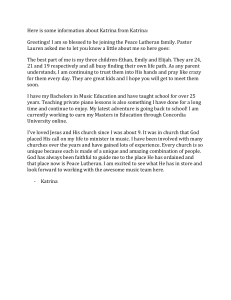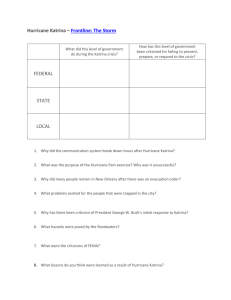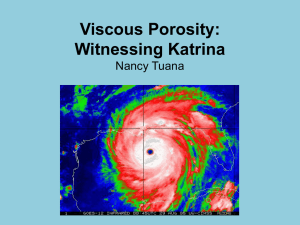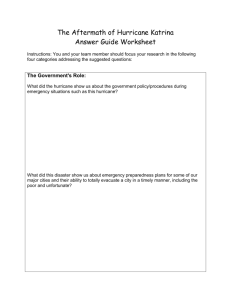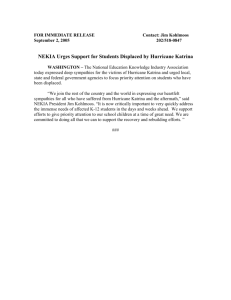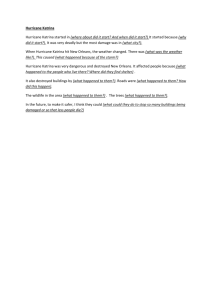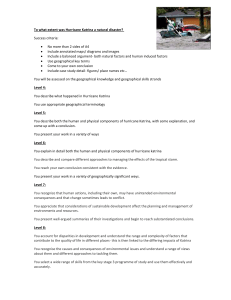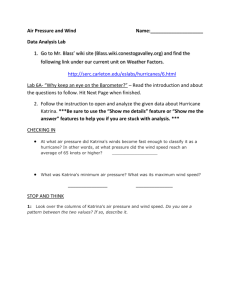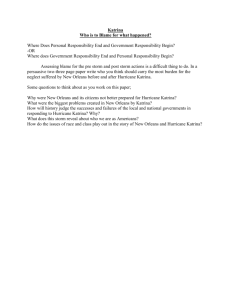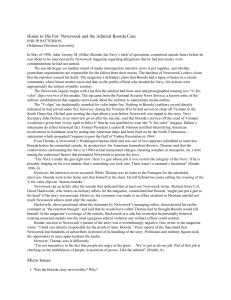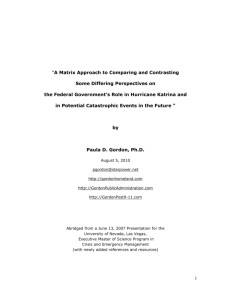The Wonderful World of Oz
advertisement
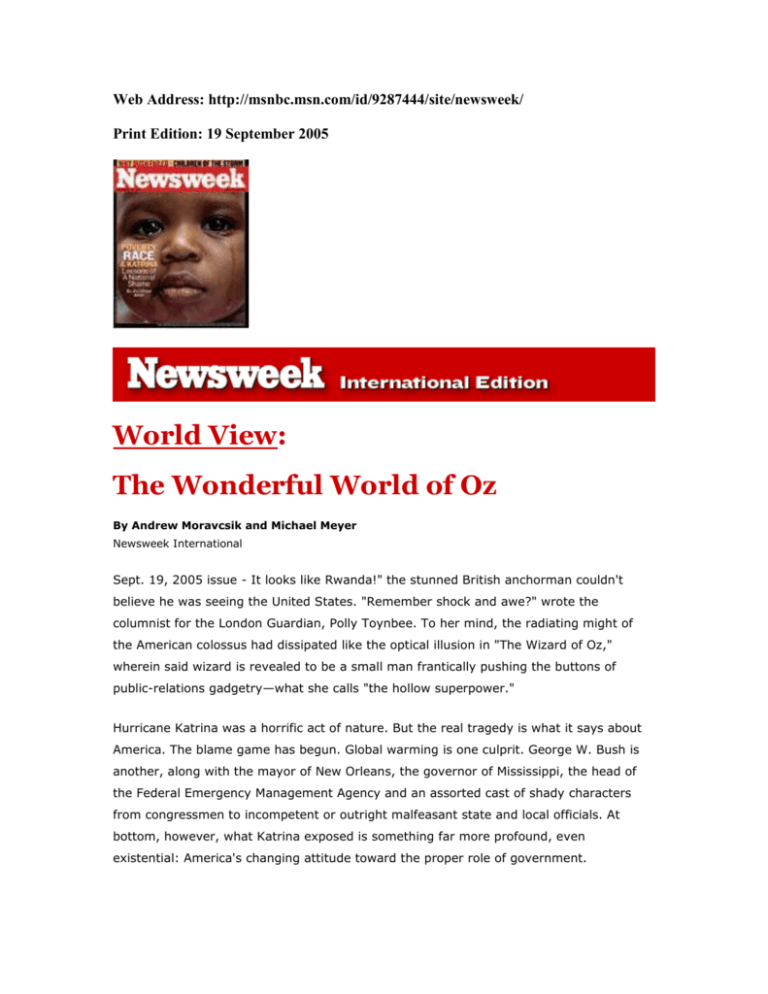
Web Address: http://msnbc.msn.com/id/9287444/site/newsweek/ Print Edition: 19 September 2005 World View: The Wonderful World of Oz By Andrew Moravcsik and Michael Meyer Newsweek International Sept. 19, 2005 issue - It looks like Rwanda!" the stunned British anchorman couldn't believe he was seeing the United States. "Remember shock and awe?" wrote the columnist for the London Guardian, Polly Toynbee. To her mind, the radiating might of the American colossus had dissipated like the optical illusion in "The Wizard of Oz," wherein said wizard is revealed to be a small man frantically pushing the buttons of public-relations gadgetry—what she calls "the hollow superpower." Hurricane Katrina was a horrific act of nature. But the real tragedy is what it says about America. The blame game has begun. Global warming is one culprit. George W. Bush is another, along with the mayor of New Orleans, the governor of Mississippi, the head of the Federal Emergency Management Agency and an assorted cast of shady characters from congressmen to incompetent or outright malfeasant state and local officials. At bottom, however, what Katrina exposed is something far more profound, even existential: America's changing attitude toward the proper role of government. The central cleavage in U.S. political life today divides those who believe that the full power and purse of the federal government should be harnessed to reduce the threats and risks faced by individuals, and those who don't. For much of the last century, beginning in earnest with Franklin Roosevelt's New Deal, those on the left of the spectrum have pushed for equal and uniform national protections for all Americans against catastrophe. Thus we have Social Security, Medicare and the Great Society welfare programs—not to mention civil rights, environmental protection and public works. Those on the right, most notably the libertarian conservatives now ascendant in every branch of government, oppose such efforts, except in defense. Such security should instead be provided by individuals who can afford it, or by private business and "faithbased" community groups. Though few say so plainly, they dislike government as a matter of principle. A social contract? The public good? At best "an option, not a duty," as one outraged reader recently wrote to the New York Times. Katrina throws this political ideology into bold relief. Consider the testimony before Congress of Joe Allbaugh, Bush's 2000 campaign manager, tapped to head FEMA in 2001. The agency that would be responding to Katrina, he said, could best be described as "an oversized entitlement program," squandering money on programs better delivered by organizations "like the Salvation Army." The Salvation Army, bolstering levees that held back the mighty Mississippi? Add in that almost every senior official subsequently appointed to FEMA lacked even the slightest experience in emergency preparedness, and you have the prescription for a perfect storm. This is the aspect of America that foreigners find hardest to comprehend—the seemingly deliberate choice by government to expose its citizens (especially its weakest) to jeopardy. The United States remains the world's most productive economy. It outspends all other countries combined on defense. But abroad, the American model is not a popular one, and less so since Katrina. Other developed democracies take medical insurance, decent education, efficient public transport and a social safety net as essential attributes of a just society. Yet America seems determined to eliminate this and even lesser protections. Preceding the Gulf storm, the Bush administration blocked the sale of the morning-after pill, chiefly in deference to the Christian right. At the National Park Service, political appointees have sought to overturn decades of environmental practice and open pristine wilderness areas to special logging interests. Bill Frist, the Senate majority leader, expressed frustration that Katrina compromised his efforts to permanently repeal the estate tax on America's uber-wealthy, even as he had earlier championed cuts in Medicaid while refusing to allow government health-care managers to negotiate a lower bulk price on pharmaceuticals for the poor. There is a pattern. Barack Obama, the junior senator from Illinois, captured the meaning of Katrina when he condemned the "passive indifference" of our government. "The ineptitude was color-blind," said Obama, himself an African-American. "Whoever was in charge," he went on, "appeared to assume that every American has the capacity to load up their family in an SUV, fill it with $100 worth of gasoline, stick some bottled water in the trunk and use a credit card to check into a hotel on safe ground." Therein lies the real tragedy of Katrina. The shame is that so many Americans, beginning with their leaders, won't face it. Welcome to Oz. Moravcsik is a Professor of Politics at Princeton. Meyer is Newsweek's Europe editor. © 2005 Newsweek, Inc.
